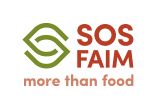
Morroco - Steps to enhance child protection
According to the UN World Tourism Organisation (UNWTO), tourism represents 9% of global GDP today as well as 30% of the world’s export services and one in every eleven jobs worldwide. Tourism represents, therefore, great opportunity in terms of economic growth, job creation and development, especially in the context of a challenging global economy. However, tourism can also have a potentially detrimental impact on local communities and the environment. The risks can be especially high for the more vulnerable groups of society such as children and youth.
In response to these risks the UNWTO adopted the Global Code of Ethics for Tourism (GCET) in 1999 which provides a frame of reference for responsible and sustainable tourism (http://ethics.unwto.org/en/content/global-code-ethics-tourism). Article 2.3 of the GCET states that “the exploitation of human beings in any form, particularly sexual, especially when applied to children, conflicts with the fundamental aims of tourism and is the negation of tourism.”
Travel and tourism are not in themselves a cause of sexual exploitation. However, as explained in ECPAT International’s 2016 report Offenders on the move : a global report on the sexual exploitation of children in travel and tourism, “in an increasingly interconnected world, more people are on the move and even the most remote parts of the planet are now within reach, thanks to cheaper travel and the spread of the Internet. As a result, the risks of child sexual exploitation are increasing.” (http://globalstudysectt.org/global-report/offenders-on-the-move/).
The travel and tourism industry has, therefore, an important role to play in improving the protection of children. In 2014, ECPAT Luxembourg launched a project in collaboration with ECPAT France and its partners in Morocco with the aim of increasing the protection of children from sexual exploitation in travel and tourism : VISA – Voyager, Informer, Sensibiliser et Agir pour la protection des enfants contre l’exploitation sexuelle dans le tourisme et le voyage.
The VISA project focused on mobilising the travel and tourism industry through providing information and training on how to establish or strengthen their child protection policies and procedures. In addition, ECPAT Luxembourg’s local partner, AMANE, organised a national conference on the protection of children against sexual exploitation in travel and tourism which was attended by over eighty professionals. Dr Najat Maalla M’Jid, the former UN Special Rapporteur on the sale of children, child prostitution and child pornography, presented ECPAT International’s report on the situation regarding the sexual exploitation of children in the Middle East and North Africa region. The conference was also an opportunity to share experience and best practice. ECPAT Luxembourg was pleased to be able to present its collaboration with Luxair as well as the online portal developed in collaboration with Luxembourg’s public prosecutor’s office and police child protection unit which enables members of the general public to report suspected cases of child sexual exploitation directly to the authorities of the country of residence of the presumed perpetrator (www.reportchildsextourism.eu).
In addition to mobilising the travel and tourism industry, the VISA project supported our local partners in developing various activities in local schools and communities designed to alert both children, teachers and parents to the risks of sexual exploitation. The awareness of thousands of children and hundreds of adults has been raised through the distribution of posters and leaflets as well as the organisation of workshops and radio broadcasts.
Finally, the project also provided training for local child protection organisations on sexual violence and how to guide and take care of its victims. One of the project’s main successes was the development and implementation of training for Moroccan police force on child-friendly interviewing techniques thanks to an excellent partnership with Francopol, an international network specialised in police training.
Communiqué par ECPAT




















